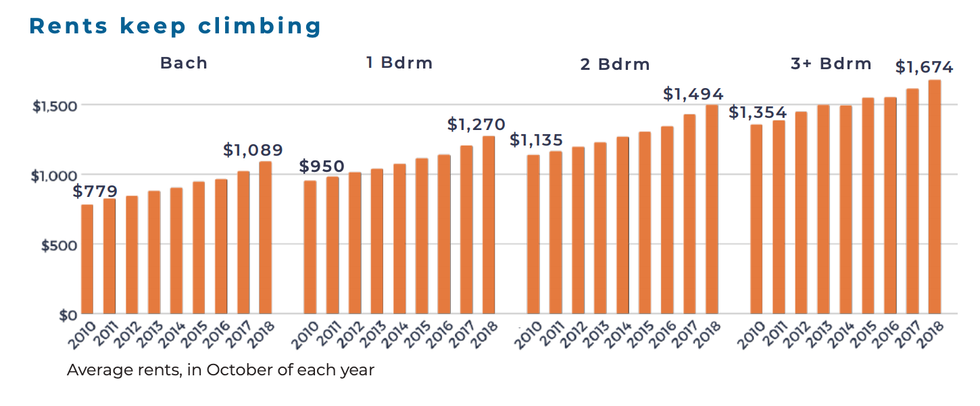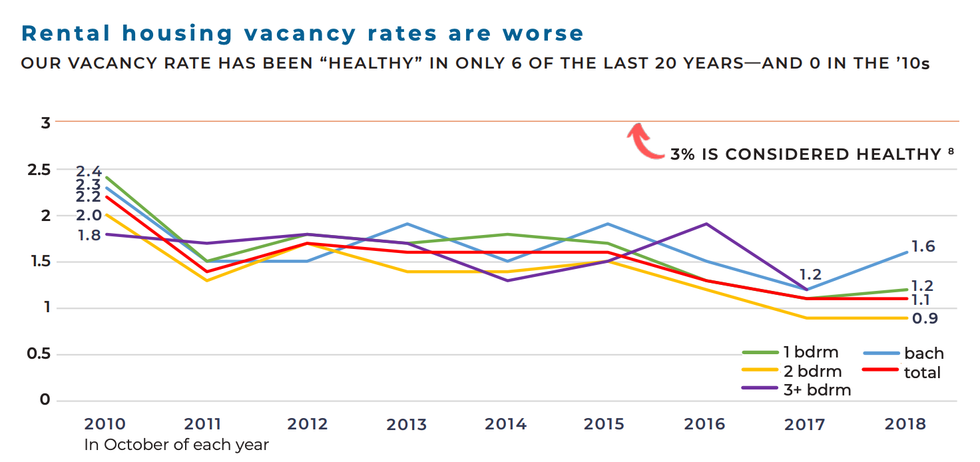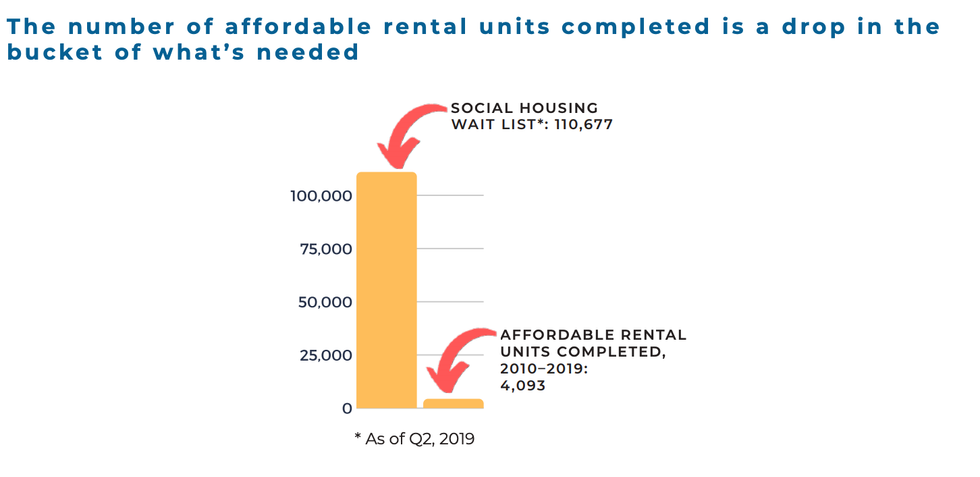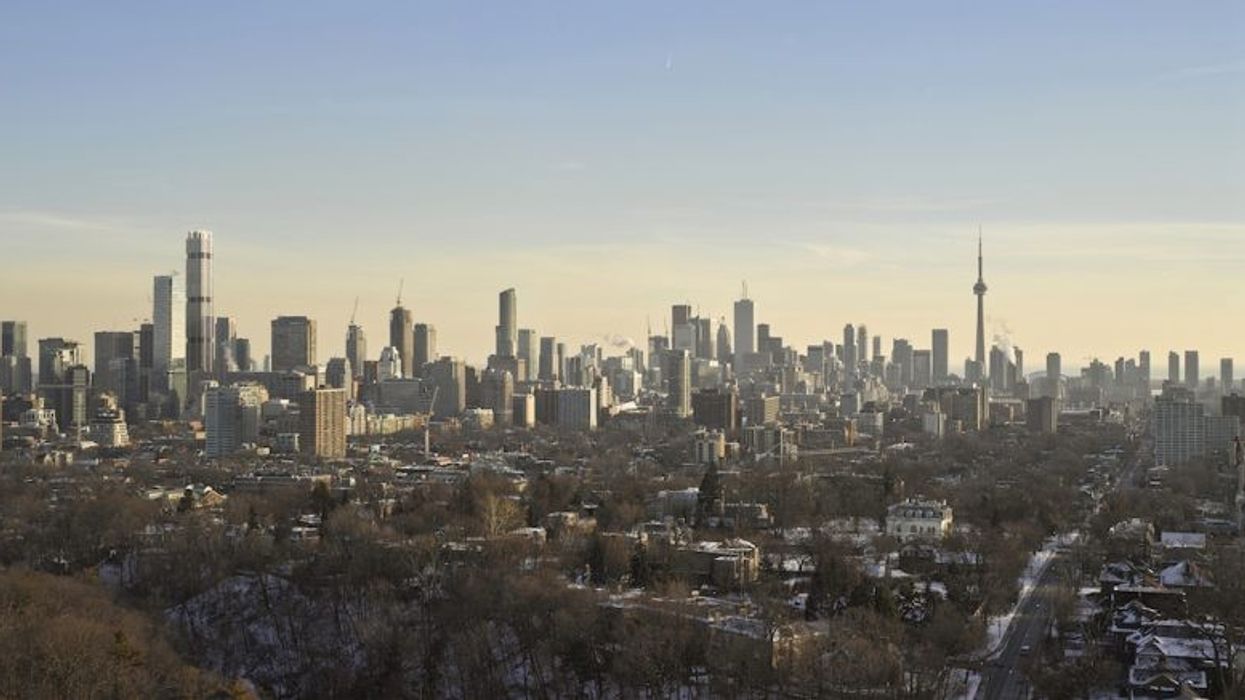With the new decade now underway, a newly released report takes a look at how Toronto's housing market has performed over the past ten years — and the numbers are bleak.
The report, titled, Toronto After a Decade of Austerity: The Good, the Bad, and the Ugly from Social Planning Toronto, was released just days before the city's 2020 budget deliberations take place on Friday and aims "to take stock of Toronto at the end of the '10s, so that we may learn from the past and chart a new path forward."
The report focuses on four key factors: housing, public transit, cycling and walking, and childcare, and makes the case for council to raise new revenues through three measures: increasing the municipal land transfer tax on luxury homes, introducing a vacant home tax, and reintroducing the vehicle registration tax.
“For the past decade, Toronto city council has made the political choice to keep property taxes low — the lowest rate in the GTA, Hamilton, and Ottawa — and to reject other options to raise revenues. That choice has come at a cost to our city,” the report says.
“It has starved our city of the necessary resources to create affordable housing, to end homelessness, to improve the public transit system, to increase access to high quality and affordable child care, to address pedestrian and cyclist safety, and to pay for the critical public services our communities rely upon.”
READ: Mayor John Tory Discovers That Taxes Buy Us Civilization
"We have an affordable housing crisis that is a daily struggle for hundreds of thousands of renters, a homelessness crisis that is taking lives, child care that is often hard to come by and the most expensive in the country, and a public transit system that requires substantial investment to meet the needs of our communities today and tomorrow," said Social Planning Toronto in the report.
However, Social Planning Toronto did applaud Mayor John Tory's leadership in recently championing a property tax levy to increase the City Building Fund and the majority of council members who recognized the need to raise revenues for critical infrastructure.
According to the report, the waitlist for social housing has grown by 51.9% over the past ten years, while the waitlist for supportive housing has almost quadrupled. Additionally, the report revealed the city has met its shelter occupancy standard (90% capacity) zero times.

The report also highlighted that the average rent in Toronto has risen by 39.8% for bachelor units, 33.7% for one-bedrooms, 31.6% for two-bedrooms, and 23.6% for three-bedrooms between 2010 and 2018.
In comparison, the inflation rate over the same time period was 13.62%.
Moreover, the report said vacancy rates for available rental units have been at "historic lows," making it hard for renters to find a place to live, much less an adequate and affordable home.

Housing experts say a healthy vacancy rate is between 3–5%. However, throughout the decade, Toronto’s vacancy rates have been well below that threshold. Recent vacancy rates are 1.6% for bachelor units, 1.2% for 1-bedrooms, 0.9% for 2-bedrooms, and 1.2% for 3+ bedrooms.
READ: The Year Ahead – Top Ten Ideas For A Better Toronto
As for affordable housing, over the past decade, the total number of new affordable units built amounts to just 4,093, which Social Planning Toronto described as "hardly a drop in the bucket compared to the real need."
This number is also less than half of the modest target of 10,000 new affordable rental units set by Toronto City Council in “Housing Opportunities Toronto,” its ten-year (2010–2020) housing plan.

But there is some hope for the city. Social Planning Toronto suggests that in order to increase funding for the city's much-needed housing, transit, and child care projects, council should consider implementing Municipal Land Transfer Tax for luxury homes, re-introducing the Vehicle Registration Tax, and introducing a Vacant Home Tax.
You can find the full report here.




















